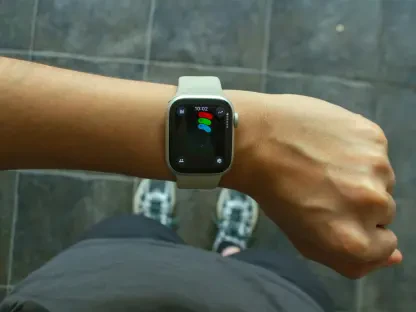The landscape of sleep tracking technology has evolved rapidly, and 2025 is at the forefront of this transformation, offering a myriad of devices designed to suit diverse lifestyles and needs. Sleep health is increasingly recognized as a crucial component of overall well-being. With technological advancements, consumers now have access to innovative sleep trackers that not only monitor sleep quality but also provide valuable insights into general health. Whether tucked into a sleek smart ring, embedded in a cutting-edge fitness watch, or featured in a minimalist band, these devices have become indispensable tools for those seeking to enhance their rest. The surge in popularity of these trackers is a testament to their utility and the growing public awareness around the importance of quality sleep.
Understanding Sleep Tracker Importance
The significance of sleep trackers lies in their ability to provide users with insights about their sleep patterns, which directly influence physical and mental health. These devices can track different stages of sleep, heart rate variability, and other essential parameters that contribute to understanding why good sleep is vital for recovery and daily performance. As more people strive to achieve optimal health, sleep trackers have become valuable allies in recognizing and improving sleep-related behaviors. Their rise is linked to an increasing awareness that poor sleep can lead to a variety of health issues, including reduced cognitive function and heightened stress levels.
Sleep trackers have become increasingly sophisticated, offering users comprehensive data that was previously only accessible through clinical sleep studies. This advancement has empowered individuals to make informed decisions about their lifestyle choices, tailoring their evening routines to optimize rest. Insights gleaned from these devices can lead to healthier habits, ultimately reducing the risk of chronic conditions related to poor sleep. In short, by providing users with a clearer picture of their sleep quality, these trackers are pivotal in bridging the gap between restful nights and vibrant days.
A Variety of Sleep Tracking Devices
The array of available sleep tracking devices in 2025 reflects the diverse needs and preferences of consumers. From smart rings to fitness watches, each device offers distinct advantages and features while adapting to individual lifestyles. For example, the Oura Ring 3 stands out for its ability to deliver a holistic overview of health by seamlessly integrating sleep data with activity levels and other health metrics. This versatility makes it a popular choice among those seeking an all-encompassing health companion on their wellness journey.
Alternatively, some might opt for more budget-friendly tools that still deliver valuable insights. Devices like Redmi Watch 5 provide impressive battery life and essential tracking features at a more accessible price point. Meanwhile, for those who prefer traditional aesthetics, products such as the Withings ScanWatch Horizon offer the perfect blend of classic design and avant-garde technology. Understanding device diversity helps consumers make informed decisions tailored to their unique needs and preferences, ensuring the selection of a tracker that perfectly aligns with daily habits and goals.
Device Features and User Considerations
When selecting a sleep tracker, potential buyers should consider various factors beyond just aesthetics or brand reputation. Comfort and design are crucial, especially considering that the device will be worn during sleep. Devices such as the Ultrahuman Ring AIR are designed specifically with comfort in mind, ensuring they don’t disrupt sleep while collecting valuable data. Additionally, battery life is an important consideration for those who travel frequently or don’t want the hassle of charging devices every day. The Fitbit Luxe, for example, offers a practical balance between sleek design and functionality.
Furthermore, subscription models are becoming more common among advanced sleep trackers, where a monthly subscription provides enhanced analytics and insights. With devices like the Oura Ring 3 and Whoop 4.0, users gain access to comprehensive data that extends beyond basic sleep metrics, offering deeper insights into overall health and well-being. It is essential to weigh these additional costs against the benefits provided by the subscription service to make a decision aligned with specific needs and financial constraints. Ultimately, choosing the right sleep tracker requires a thoughtful evaluation of personal preferences, lifestyle, and specific health goals.
Holistic Health Approach in Sleep Trackers
The trend in sleep tracking technology points toward a holistic approach to health, increasingly integrating sleep with broader wellness metrics. Devices now offer insights beyond simple sleep tracking, connecting how rest impacts physical activity, cardiovascular health, and mental well-being. This interconnectedness has become a key selling point, transforming sleep trackers from single-purpose tools to dynamic health companions. Products like the Amazfit Balance encapsulate this trend by combining comprehensive sleep data with insights on daily activity patterns and well-being practices.
The move towards holistic health monitoring fosters a better understanding of how lifestyle choices impact sleep and vice versa. By using these devices, users become more attuned to how factors like diet, exercise, and stress levels can influence sleep quality. This knowledge empowers individuals to adopt healthier habits, ultimately promoting a more balanced life. Manufacturers’ focus on creating more sophisticated algorithms and sensors to detect subtle variations in health markers signals an exciting future for interconnected health insights.
Conclusion and Future Prospects
The sleep tracking world of 2025 presents a rich tapestry of options catering to varied consumer desires and health ambitions. Devices have become more specialized, focusing on comfort and unobtrusiveness while delivering comprehensive health insights. With sleep being a cornerstone of wellness, these trackers offer invaluable tools for enhancing life quality. They effectively guide users toward improved sleep hygiene and overall health. Consumers can leverage personal insights to lead healthier lives, recognizing sleep’s transformative role in daily well-being.
As technology advances further, sleep trackers are likely to grow even more integrated with other health metrics, offering seamless health management tools. Individuals can now begin their journey to better sleep with confidence, knowing they have a wealth of intelligent devices to support them in reaching their wellness goals. Diverse preferences continue to guide product innovation, ensuring there remains a perfect sleep tracker for every lifestyle and need.









